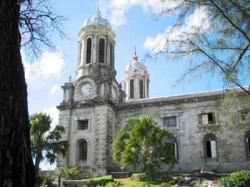Rollins College-American Novelist Jamaica Kincaid 2008 Selected quotes:
Jamaica Kincaid was born in 1949 in St. John’s, Antigua. As an only child, she maintained a close relationship with her mother until the age of nine, when the first of her three brothers was born.
At the age of 16, with a growing ambivalence for her family and a rising contempt for the subservience of the Antiguans to British colonialist rule, Kincaid left Antigua, bound for New York. After working for three years and taking night classes at a community college, Kincaid won a full scholarship to Franconia College in New Hampshire. However, after a year of feeling “too old to be a student,” she dropped out of school, returned to New York and secured a job writing interviews for a teenage girls magazine.
The reading was followed by an interview with Philip Deaver, director of
Winter With the Writers. During the interview, Kincaid talked about the autobiographical elements to all of her stories, how she found her voice by writing about her past and how her interests and knowledge in other areas intertwine and become part of her writing.
She also shared, “
I had to find my freedom because I was just 16 when I got to America and I was afraid and homesick, but I was determined to write. I think I found my voice through writing about my past.
Everything I write is autobiographical. But I do not at all feel like I have put myself down on paper enough for anyone to really know me. I don’t even know myself well enough. I write autobiographically to explore, not to expose myself."
A visiting professor at Harvard University, where she teaches creative writing, Kincaid is at work on a new novel,
See Now Then. The book is about a family in the small village of North Bennington, Vermont.

















